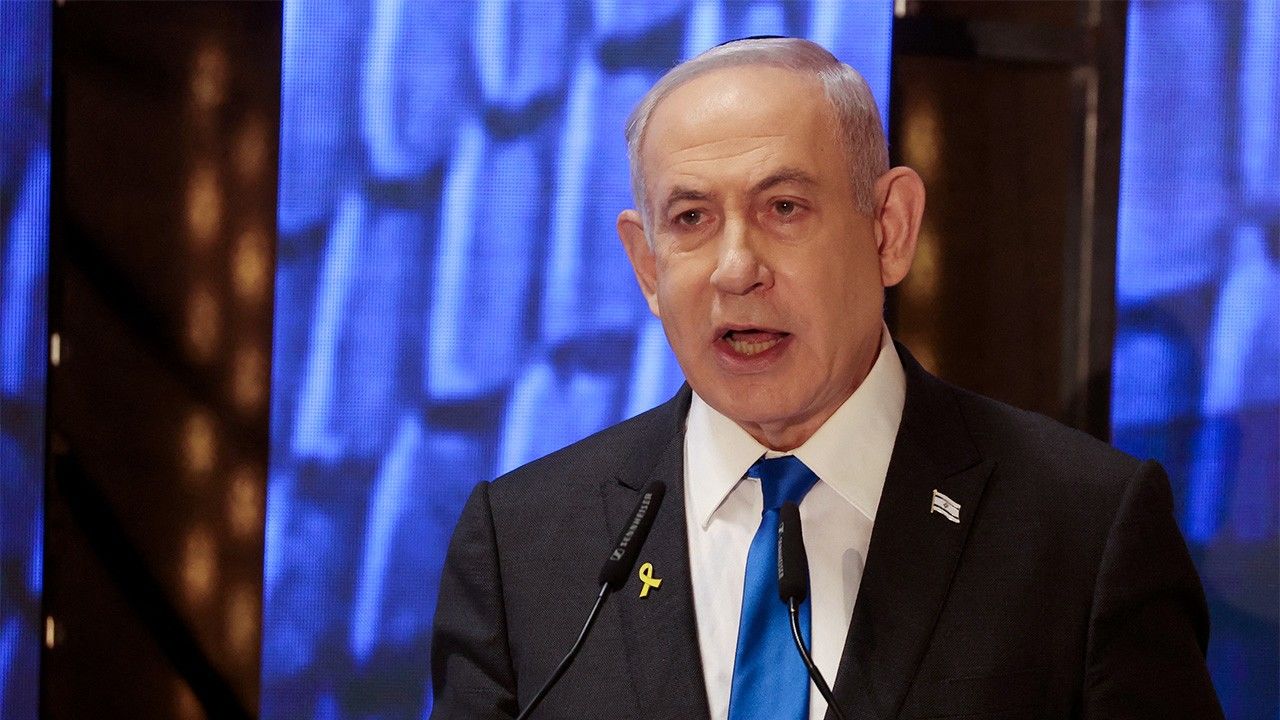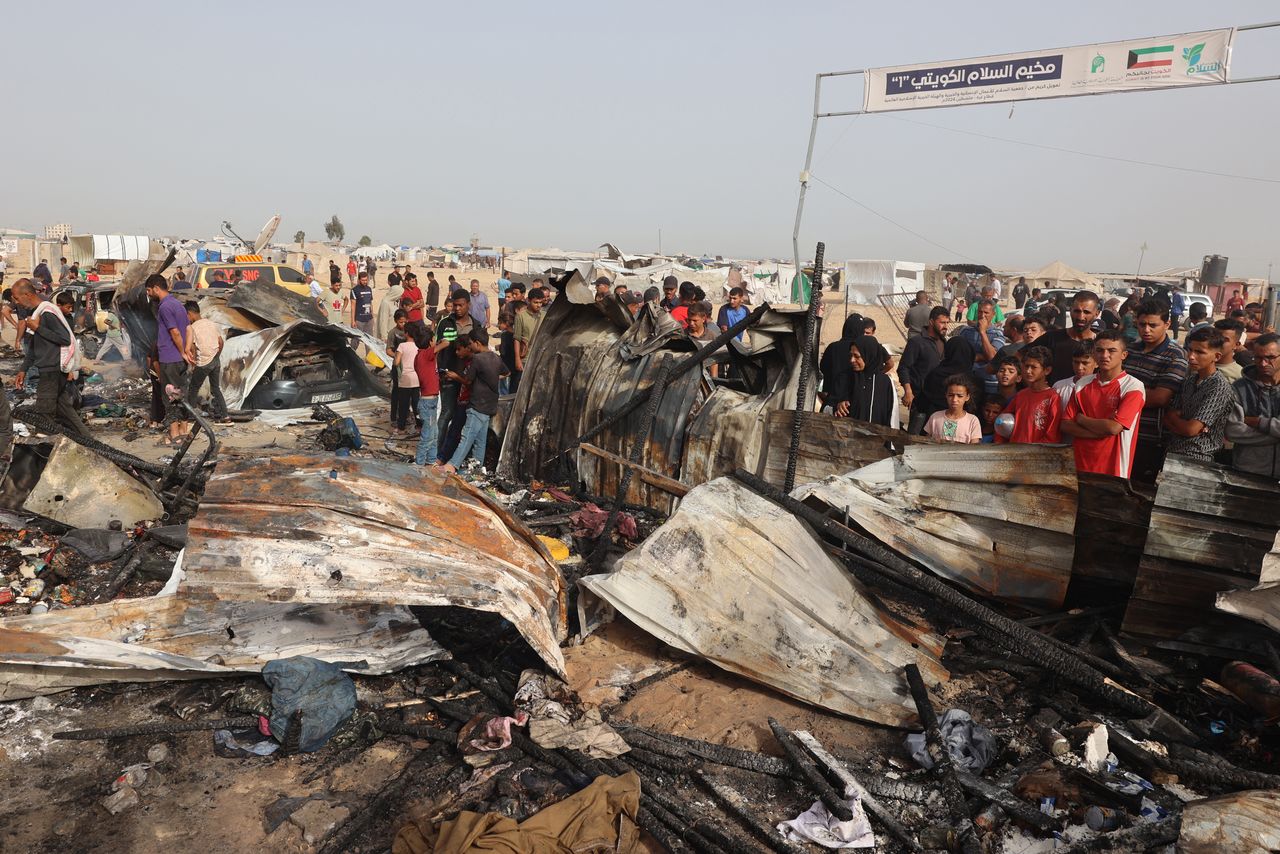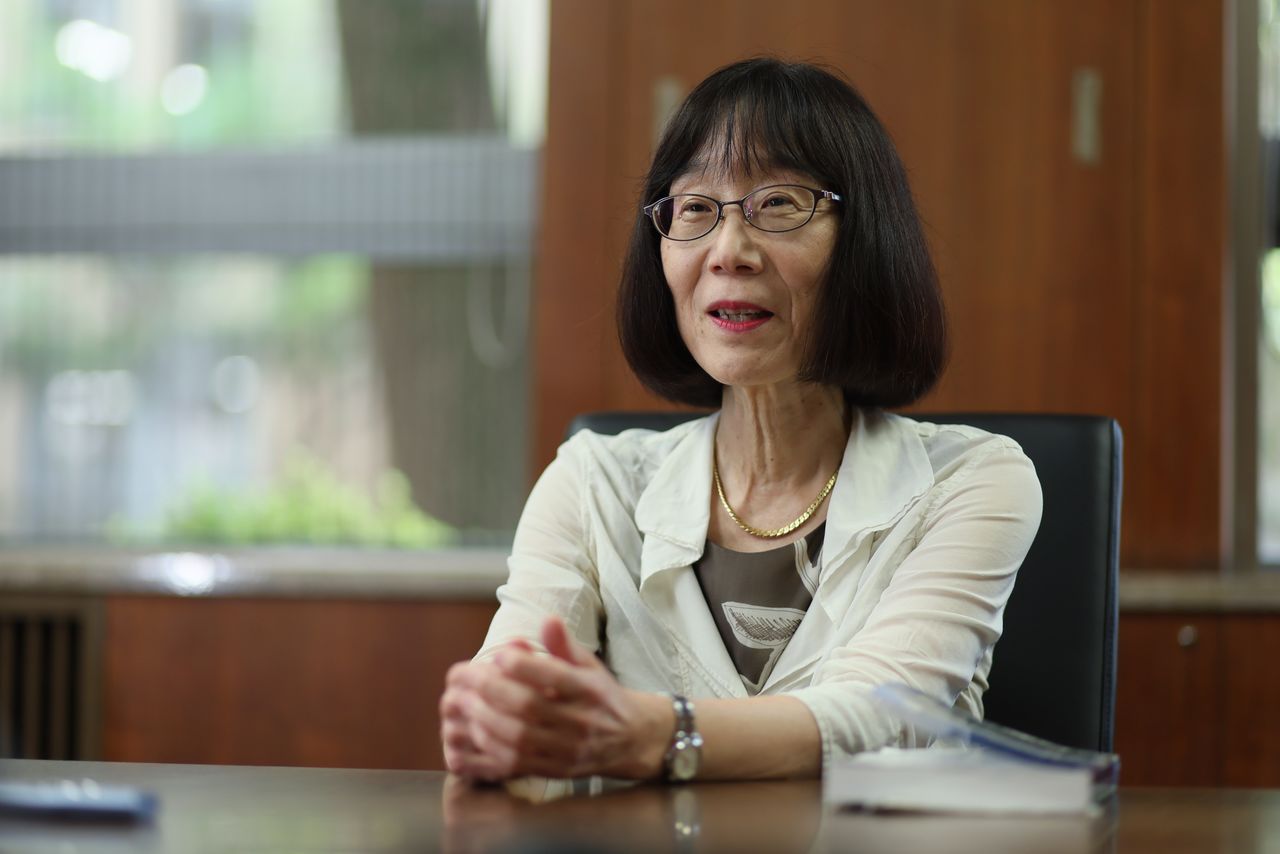
The War in Gaza and the ICC: Last Stand for the International Rule of Law?
World Politics- English
- 日本語
- 简体字
- 繁體字
- Français
- Español
- العربية
- Русский
The Rule of Law and the ICC
The international community is increasingly divided by hostility between democratic and authoritarian states, as well as the US-China rivalry. While many nations prefer to distance themselves from such antagonism, the weakening fabric of the international order could tear apart at any moment unless urgent action is taken.
Renewed respect for the “rule of law” therefore has a vital role to play in reversing this damage and strengthening a sense of international community. The International Criminal Court, which punishes and deters investigates and prosecutes the “gravest crimes of concern to the international community,” might be the last bastion of the international rule of law.
The ICC is the only permanent international court with the jurisdiction to prosecute individuals for genocide, war crimes, crimes against humanity, and the crime of aggression. It is a “court of last resort” meant to complement national courts, and it usually acts when national courts have been found unable or unwilling to try a case. The ICC’s legal existence derives from the 1998 Rome Statute, which itself was agreed upon to bring into force the aims of the 1948 Genocide Convention.
Moving to Prevent Another Holocaust
Shocked by the full scope of the Nazi Holocaust revealed in the aftermath of World War II, the international community adopted the Convention on the Prevention and Punishment of the Crime of Genocide at the United Nations in 1948. Article VI of the Convention alludes to the establishment of a competent international tribunal for trying people accused of such crimes. This reflected the fact that genocide is usually committed by powerful leaders, meaning that national courts cannot be relied upon to prosecute such individuals in many cases.
Geopolitical and ideological struggles prevented such a tribunal from being established, however, until after the end of the Cold War. With the intensification of civil wars, regional conflicts, and humanitarian crises in the 1990s, an international treaty (the Rome Statute) to create the ICC was finally adopted in 1998. With the ICC taking a further five years to begin operations, it had taken almost a half-century for the aims of the Genocide Convention to be realized.
As of June 2024, the ICC has 124 member states, 33 in Africa, 19 in Asia and the Pacific, 19 in Eastern Europe, 28 in Latin America, and 25 in Western Europe. Three of the five permanent members of the United Nations Security Council (the United States, China, and Russia) are not members. As contributions are calculated in a similar way to that of the United Nations, Japan has to date been the largest contributor.
In July 2023, the ICC made international headlines when it requested and then issued an arrest warrant for Russian President Vladimir Putin. In addition to attempting to hold President Putin responsible for the war in Ukraine and the violation of core international crimes under the Rome Statute, the arrest warrant also means the 124 member countries are obligated to implement travel restrictions and cooperate with the arrest.
Of interest in this regard is that Armenia became the 124th ICC member last November, following the issuance of the arrest warrant for Putin (its formal induction took place in February 2024). This was in effect an indication of Armenia distancing itself from Russia. The United States is not a member of the ICC because it does not want its citizens, including military personnel, to be tried by an international court. It did, however, immediately offer its support to the ICC for Putin’s arrest and investigation.
West Divided Over “Israeli Crimes”
Western nations are, however, divided in their reactions to the ICC Office of the Prosecutor’s application for arrest warrants for leaders of both Israel and Hamas, including Prime Minister Benjamin Netanyahu, for their actions in the war in Gaza.
The United States, historically a strong supporter and ally of Israel, immediately criticized the ICC’s action. President Joe Biden labelled the arrest applications “outrageous,” and on June 4, a Republican majority in the US House of Representatives passed a bill to impose sanctions on ICC officials and others as a countermeasure. This reaction differs markedly from when arrest warrants were issued against President Putin and has made visible the double standard in the United States’ approach to the ICC and international law.
In Europe, meanwhile, France and Spain immediately reaffirmed their support for the ICC’s independence as a court. Germany announced that while it “respects the independence and procedures” of the ICC, it worried that the simultaneous application for arrest warrants “created the incorrect impression of equivalency” between Hamas and Israeli leaders. British Prime Minister Rishi Sunak criticized the action due to the ICC not having “the jurisdiction to request the arrest warrants” in this particular case—despite ICC Prosecutor Karim Khan being British.
The Japanese government’s approach has so far been ambiguous. Foreign Minister Kamikawa Yōko indicated that the Japanese government would refrain from making any prejudgment about the ICC’s decision and that it would “continue to closely follow the developments with serious concern as a state party to the ICC.” However, this wait-and-see approach will not work forever.
It took 25 days for the application for an arrest warrant made by the ICC Office of the Prosecutor to be approved in Putin’s case. Given that the number of crimes and suspects is considerably larger this time, the expectation is that Pre-Trial Chamber I will take at least a month, if not several months, to determine whether arrest warrants will be issued. If they are, Japan will need to make clear that it will “solemnly fulfill its obligations to cooperate as a member state” under the Rome Statute.
The purpose of the ICC is to punish and deter the four international “core” crimes that are intolerable to humanity. It is worthwhile recalling the famous words uttered by Hitler only one week before the invasion of Poland: “Who, after all, speaks today of the annihilation of the Armenians?” These words showed Nazi Germany’s confidence that it could act with impunity and get away with genocide as long as it erased traces of its crimes from history. This was the backdrop to the Genocide Convention; the ICC was eventually established to ensure the punishment of such crimes.
This makes the current situation where Israel’s leadership has persisted in the killing of civilians in the Gaza Strip and rejected international calls for a cease fire all the more perverse. This finally led to the ICC filing applications for arrest warrants for Israel’s prime minister and minister of defense for war crimes and crimes against humanity including “intentionally directing attacks against a civilian population” and using “starvation of civilians as a method of warfare.”
It should also be seen as proof that any nation can be both a potential perpetrator and victim of such crimes. This is true whether we are talking about Israel, where the Jewish people have long been held up as a symbolic victim of genocide, or a “peace nation” like Japan seemingly uninvolved in international conflict. A country that faces up to and addresses hate crimes and other crimes within its own borders is the one that can deter the escalation of these kinds of international core crimes.
I would note, personally, that the Japanese government’s stance on why it has not signed the Genocide Convention is unpersuasive. This was articulated in the House of Representatives Judicial Committee (on November 5, 2013) as: “with regard to the Genocide Convention, there is a lack of clarity regarding the acts that the Convention requires to be criminalized . . . and the actual need to establish a crime of mass murder is not necessarily very great in light of the actual situation in Japan.”

People gather at the site of a displaced persons camp attacked by Israeli forces in Rafah, southernmost Gaza, on May 27, 2024. (© AFP/Jiji)
The Role Japan Should Play in Supporting the ICC
Under these circumstances, Japan should and can play a role that goes beyond simply fulfilling its obligations as a member of the ICC.
Why should Japan play such a role? One reason is that the ICC, as a bastion of judicial guarantees, is a vital component of the international order that Japan operates in, fundamental to Japan’s diplomatic promotion of the “rule of law” as the foundation of common values. In the Joint Statement of the G7 Summit held in Hiroshima last year, the “rule of law” concept was repeatedly referred to as the foundation for Japan’s “Free and Open Indo-Pacific” vision.
It was notable during the summit, however, that references to democracy were much more carefully limited to that of being core “G7 values” or as the foundation of the AI vision. Most likely, the annoyance of some in Asia at President Biden’s imposition of America’s own standards in the selection of invited countries to the “Democracy Summit” in previous years was still fresh in organizers’ minds. The Japanese government’s policy of highlighting the “rule of law” as a common global value was therefore timely. This is precisely why Japan must work harder to support and strengthen the ICC.
How to Support the Court
Japan is already the largest cost contributing nation to the ICC, with its 2023 contribution coming to ¥3.75 billion. Japan has also made major human resource contributions to the ICC, such as by providing judges for three consecutive terms since its accession. Furthermore, Akane Tomoko—a former public prosecutor in Japan—was recently elected as ICC president and will lead the court until 2027.

Akane Tomoko, judge and president of the International Criminal Court from March 2024. Photographed in July 2023. (© Jiji)
Japan should therefore recognize itself as a nation that is capable and responsible for determining the future of the ICC. It should play an even more active role in supporting ICC operations. Japan could undertake three concrete measures to do this.
First, Japan should finally accede to the Genocide Convention. While a member of the Rome Statute, Japan is not one of the 153 member states that are signatories to the Convention, a glaring omission given it is the established international framework for preventing and punishing genocide—the “core crime” within the group of core international crimes. This situation should be resolved as soon as possible.
Second, the Genocide Convention requires member states to develop domestic laws to punish genocide. Currently, there is no such crime called “genocide” in Japan’s penal code. If it were to join the Convention, it should not take the easy way out by referring to collective forms of “murder” or “kidnapping” in its existing criminal law. In accordance with the historical background of genocide and the purpose of the Convention, Japan should establish a new “genocide” crime as a special criminal category in a way that supports the common interests and legal understandings present in the international community.
Third, while the ICC has its headquarters in the Hague, there is growing momentum to establish an Asian seat in Japan. Following its creation, the ICC has tried several African cases in the Hague. This has not been without some discontent due to the composition of the ICC and the fact such trials take place in Europe, the location of Africa’s former colonial rulers.
Furthermore, as any country or people can potentially be both a victim and a perpetrator of international core crimes, it would seem natural to have an alternative. The Hague may also not necessarily be the best place for trying violations of humanitarian law committed in Asia. As the home to the ICC and the International Court of Justice and other prominent international institutions, the Hague is a “city of peace and justice.” If Japan were to position itself to take on a similar role, it would very much be in its national and international interests.
Sovereignty as a Barrier to Dignity for the Vulnerable
The application for an arrest warrant for Israel’s Netanyahu challenges each nation to remain disciplined and committed to upholding the “rule of law” by restraining those who commit unforgivable inhumane acts and violate the international status quo by force. Because such discipline may conflict with norms of mutual respect for national sovereignty, it may also become a political issue.
We should remember, however, that the ICC’s purpose goes beyond the political agendas of powerful nations. The court’s existence demonstrates that anyone can be subject to the norms of justice and that there is always the potential to restore the dignity of people who have been unreasonably deprived of it—irrespective of which country they come from. This dynamic is reflected in the member countries who have joined the ICC. While fragile and weaker states are enthusiastic supporters, some powerful states have opposed the ICC’s actions and refused to join it.
Japan, on the other hand, enjoys a strong and relatively stable economic and security foundation, and has made significant contributions as an ICC member. It has also earned an invaluable reputation in international affairs as a country that keeps its international promises and avoids imposing its own political preferences on others. As the international order has been eaten away at by the imposition of political agendas, including in the name of “democracy,” it is precisely the reassertion of a humanitarian “rule of law” that can help mend the foundations of the international community.
The ICC must be furnished with the support and infrastructure to restore the dignity of the weak, even if it ultimately results in challenging norms of national sovereignty. The more the ICC fulfills its mission independently from the absurdities of international power politics, the more its international presence is recognized—but, paradoxically, the more its foundation of its existence is shaken because it challenges established political interests.
Nevertheless, the international community needs the ICC to enthusiastically embrace the role of being a judicial guarantor of people’s rights to be treated as human beings, no matter what country or time period they are born in. Japan must advocate for and support the independence and judgment of the ICC. This is the historical role we are now expected to play.
The June 9–14 visit to Japan by ICC President Akane, her first since assuming that post, was therefore timely. She met with key government officials and exchanged views with a variety of people from civil society. As the leader of the ICC at a turbulent time, we should listen carefully to the message she delivered to Japan.
(Originally published in Japanese. Banner photo: Israeli Prime Minister Benjamin Netanyahu speaks at a memorial service for fallen soldiers in Jerusalem on May 13, 2024. © AFP/Jiji.)
Related Tags
international relations conflict International Criminal Court
